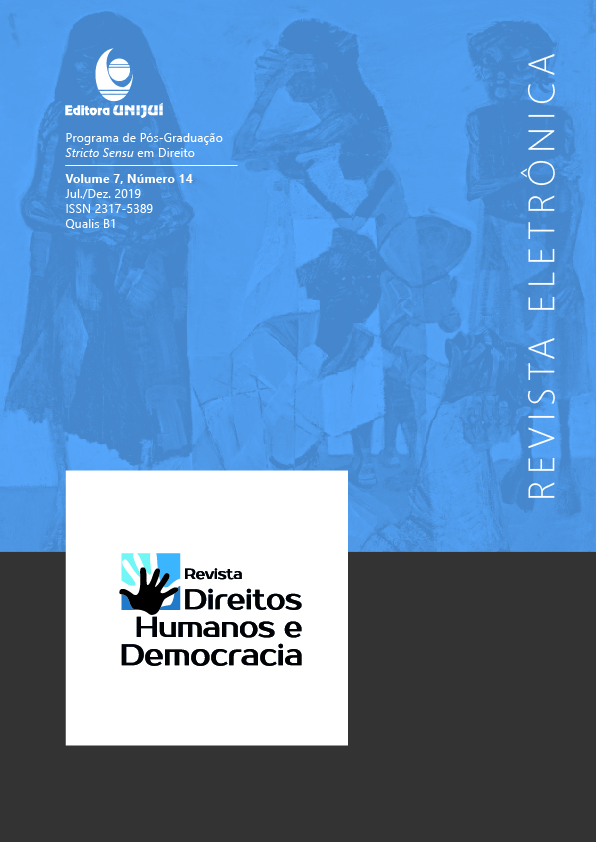DOUTRINA DA PROTEÇÃO INTEGRAL E CRIMINOLOGIA BRASILEIRA: A SUJEIÇÃO CRIMINAL DO ADOLESCENTE SUSPEITO
DOI:
https://doi.org/10.21527/2317-5389.2019.14.151-171Resumo
O trabalho discute como a Doutrina da Proteção Integral opera na América Latina, cuja tônica é marcada pela falta de expectativas educacionais e de inserção no mundo do trabalho, principalmente para os que habitam as periferias brasileiras. O marco teórico é da criminologia crítica que, considerando a interdisciplinaridade e incompletude da sua conceituação e a necessidade de uma criminologia brasileira, abre-se para novos instrumentais analíticos. O conceito de sujeição criminal de Michel Misse auxilia nesse sentido, na medida em que aponta que o acúmulo histórico de uma dada realidade pode levar a um tipo social negativo, avaliado independentemente de condutas. Ao associar os instrumentais teóricos, ante a atuação do adolescente em conflito com a lei, a hipótese que se apresenta é que, desde a polícia, um processo de suspeição é instaurado, pois leva em conta um padrão normal de juventude. Desse modo, a partir de revisão bibliográfica objetiva-se identificar mecanismos que despertam a figura do adolescente suspeito. Pretende-se discutir, também, a partir de observação etnográfica que está em curso na Gerência de Polícia da Criança e do Adolescente da cidade do Recife - PE, achados iniciais que apontam para a construção social do adolescente suspeito. A conclusão é que o discurso jurídico da proteção integral, ante as especificidades da sociedade brasileira, pode ter criado uma retórica que oculta uma prática social que reifica o adolescente.
Downloads
Publicado
Como Citar
Edição
Seção
Licença
Ao publicar na Revista Direitos Humanos e Democracia, os autores concordam com os seguintes termos:
Os trabalhos seguem a licença Creative Commons Atribuição 4.0 Internacional (CC BY 4.0), que permite:
Compartilhar — copiar e redistribuir o material em qualquer meio ou formato;
Adaptar — remixar, transformar e criar a partir do material para qualquer fim, inclusive comercial.
Essas permissões são irrevogáveis, desde que respeitados os seguintes termos:
Atribuição — os autores devem ser devidamente creditados, com link para a licença e indicação de eventuais alterações realizadas.
Sem restrições adicionais — não podem ser aplicadas condições legais ou tecnológicas que restrinjam o uso permitido pela licença.
Avisos:
A licença não se aplica a elementos em domínio público ou cobertos por exceções legais.
A licença não garante todos os direitos necessários para usos específicos (ex.: direitos de imagem, privacidade ou morais).
A revista não se responsabiliza pelas opiniões expressas nos artigos, que são de exclusiva responsabilidade dos autores. O Editor, com o apoio do Comitê Editorial, reserva-se o direito de sugerir ou solicitar modificações quando necessário.
Somente serão aceitos artigos científicos originais, com resultados de pesquisas de interesse que não tenham sido publicados nem submetidos simultaneamente a outro periódico com o mesmo objetivo.
A menção a marcas comerciais ou produtos específicos destina-se apenas à identificação, sem qualquer vínculo promocional por parte dos autores ou da revista.
Contrato de Licença: Os autores mantém os direitos autorais sobre seu artigo, e concedem a Revista Direitos Humanos e Democracia o direito de primeira publicação.













